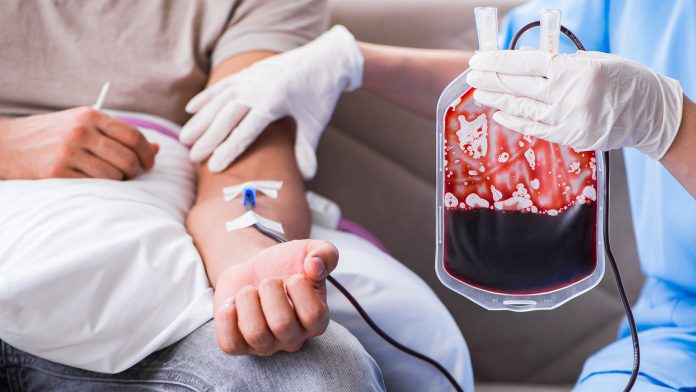
In a historic move, the NHS has launched an unprecedented ‘blood matching’ genetic test to combat blood transfusion side effects.
This innovative test is set to redefine the approach to blood transfusions for individuals with sickle cell disorder and thalassaemia, offering a more personalised care experience.
Notably, the NHS becomes the first global healthcare system to implement this cutting-edge blood group genotyping test.
Tailoring care for sickle cell disorder and thalassaemia
Sickle cell disorder affects approximately 17,000 individuals in England, with 250 new cases arising annually.
The disorder, prevalent among individuals of Black African and Caribbean heritage, can lead to severe organ damage and intense pain when damaged red blood cells obstruct vessels, limiting oxygen supply.
Thalassaemia, affecting around 800 patients with fewer than 50 new cases each year, is characterised by inadequate production of haemoglobin, causing severe anaemia. This condition is mainly observed in those with Asian, Middle Eastern, and Southern Mediterranean heritage.
Pioneering medical advancement
Marking a significant milestone in healthcare, the DNA analysis of patients’ blood groups aims to revolutionise the treatment landscape for those grappling with sickle cell disorder and thalassaemia.
Nearly 18,000 individuals in England facing these rare blood disorders will be eligible for this groundbreaking test, promising enhanced precision in blood transfusions by identifying the most compatible blood for patients with intricate requirements.
Overcoming blood transfusion side effects
While transfusions are a crucial aspect of treating rare inherited disorders, blood transfusion side effects are a major challenge.
About one-fifth of patients develop antibodies against certain blood groups after transfusions, leading to complications in finding suitable matches and sometimes causing adverse reactions.
The introduction of the blood group genotyping test seeks to address these issues, minimising the risk of antibody development and improving overall patient outcomes.
In collaboration with NHS Blood and Transplant, NHS England is urging individuals dealing with sickle cell disorder, thalassaemia, and transfusion-dependent rare inherited anaemias to undergo the blood group genotyping test alongside routine hospital blood tests.
The initiative is designed to elevate the accuracy of blood-matching procedures, ultimately reducing the risk of antibody development and enhancing the overall well-being of patients.
Extending benefits to rare inherited anaemias
Beyond sickle cell disorder and thalassaemia, the blood group genotyping test is expected to bring significant advantages to patients dealing with transfusion-dependent rare inherited anaemias, such as Diamond Blackfan anaemia.
This condition disrupts the production of red blood cells, and the enhanced precision in blood matching provided by the test could lead to improved quality of life for affected individuals.
The introduction of the blood group genotyping test by the NHS signifies a groundbreaking leap forward in medical innovation.
By harnessing the capabilities of DNA analysis, the healthcare system is poised to redefine the landscape of transfusions, minimising blood transfusion side effects, and providing a more individualised approach to care.






















